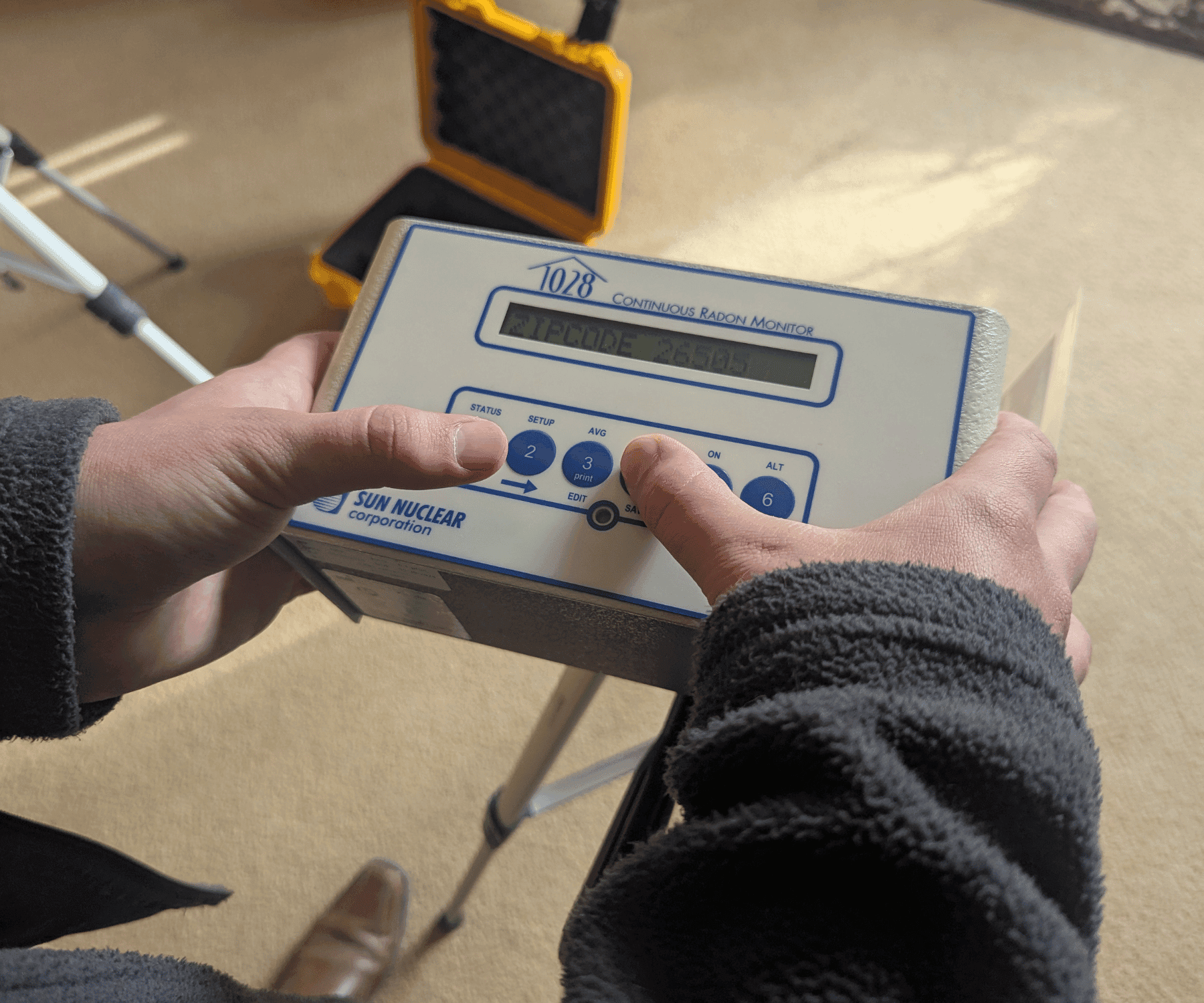
Radon is a naturally occurring, colorless and odorless gas that results from the decay of uranium deep underground. Radon moves up through the bedrock, then into the soil, then up from the soil into the atmosphere.
When radon comes up into the air outside it is perfectly harmless. When radon comes up into your basement and into your house, it can become a problem.
Because radon is radioactive, exposure to high levels of radon (above 4pCi/L) can lead to lung cancer. The EPA estimates that radon is the No. 1 cause of lung cancer among nonsmokers – more than 20,000 deaths per year.
While in the United States, the rate of high levels of radon tends to be 1 in 15 homes, in Monongalia County, that rate is 1 in 5 homes. This is due to the rocky outcroppings that surround the area. And just because your neighbor doesn't have high radon levels doesn't mean you won't either.
Source: Basic Radon Facts
The good news is that if you have high radon levels in your home, there are things you can do to reduce the radon level in your home. The first step is to have your home tested for radon.
Radon testing
Monongalia County Health Department has staff certified by the National Radon Safety Board (NRSB) that conducts radon testing and provides education about radon mitigation.
Cost for radon testing:
- Monongalia County $125
- Monongalia County as part of an existing system (home loan) evaluation $100
- Outside Monongalia County (up to 50 miles away from Morgantown) $150
How radon testing works

A sanitarian will come to your home and place the radon monitor in the lowest livable area. Once the monitor is activated, it will run for 48 hours and then turn off automatically. After testing is complete, the sanitarian will pick up the monitor. The data is then downloaded from the monitor and a report is created. The report is then available for the homeowner by mail, email or pickup at the health department.
Call 304-598-5131 to schedule a radon test or download the form below, fill it out and email it to Evan.N.Thomas@wv.gov and Amanda.M.McCleary@wv.gov.
Radon zones are a general guide. We recommend that everyone have their home tested for radon, even if you live in a “low-risk” zone.
Additional Radon Information:
- A Citizen's Guide to Radon (EPA)
- Home Buyer and Sellers Guide to Radon (EPA)
- West Virginia DHHR Radon Website
Reducing Radon in Your Home:
Organizations that Certify Radon Professionals: